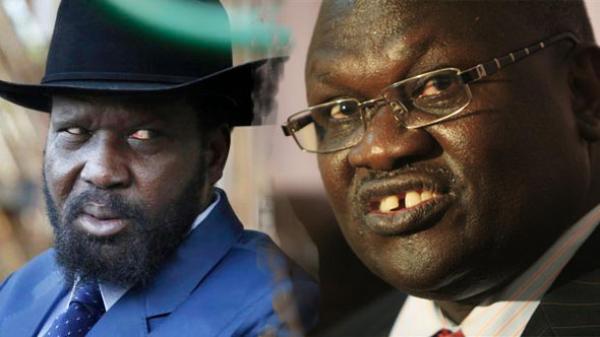
African leaders have backed plans to deploy regional troops to South Sudan after recent fighting between rival forces left hundreds of people dead.
Soldiers for the African Union (AU) force are to come from Ethiopia, Kenya, Rwanda, Sudan and Uganda.
A 12,000-strong UN peacekeeping force is already in the country, but the AU force would have stronger mandate, officials said.
South Sudan’s president has been reluctant to allow in foreign troops.
President Salva Kiir and his rival, Vice-President Riek Machar, announced a ceasefire last week.
Clashes over several days between troops loyal to the two men had threatened a recent peace deal.
“The UN doesn’t have the mandate to impose peace,” the AFP news agency quotes AU Peace and Security Commissioner Smail Chergui as saying at the AU summit in Rwanda’s capital, Kigali.
“They are there where there is peace to keep. African troops are ready to engage in very difficult situations.”
He explained that the mission would be similar to the deployment of a 3,000-strong special force that took on the M23 rebels in the Democratic Republic of Congo in 2013.
Over the weekend, UN chief Ban Ki-moon expressed his support for the AU deployment.
It seems a disagreement at a checkpoint between rival soldiers led to a shootout on the evening of 7 July in which five soldiers died. This quickly escalated into serious fighting the next day and over the following weekend. Tensions have been high since April, when Mr Machar returned to Juba under a peace deal following a two-year civil war. He took a 1,300-strong protection force with him and they were supposed to start joint patrols with forces loyal to President Kiir. But a lack of trust between the two sides means the patrols had not begun.
A ceasefire agreed last week is holding. But the two-year civil war started after clashes between rival soldiers in Juba and degenerated into nationwide conflict in which tens of thousands died. The war was fought broadly between South Sudan’s biggest ethnic groups – the Dinka, led by Mr Kiir, and the Nuer, under Mr Machar.
The international community played a major role in the creation of South Sudan and has tried to exercise some influence since independence in 2011. The East African regional group, which brokered the peace deal, is behind the plans for a robust regional force to be deployed. Many foreign nationals have been evacuated because of the most recent unrest.
BBC

Leave a Reply
You must be logged in to post a comment.